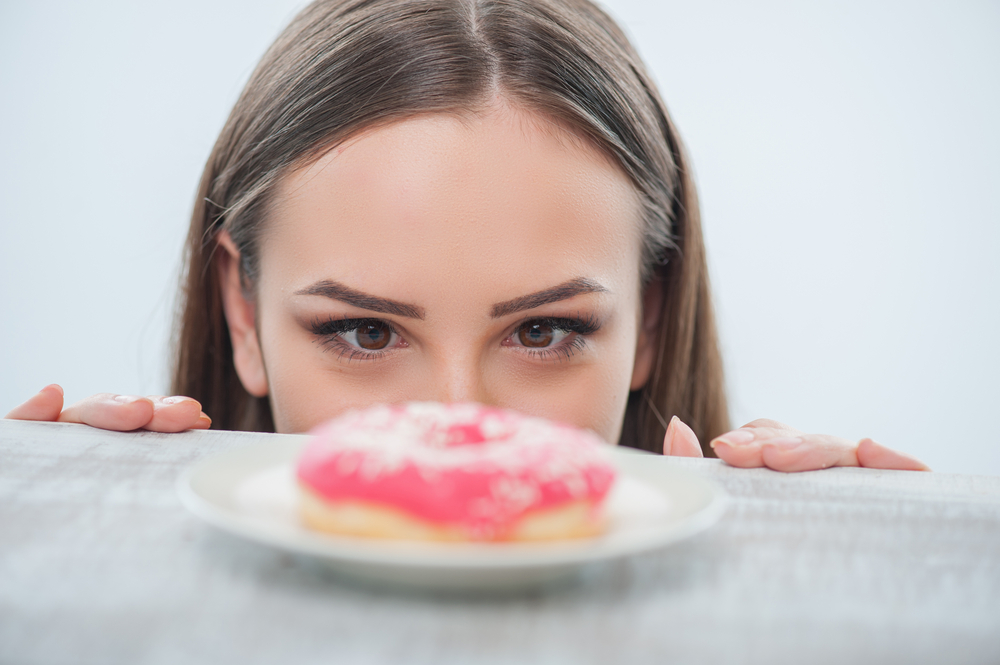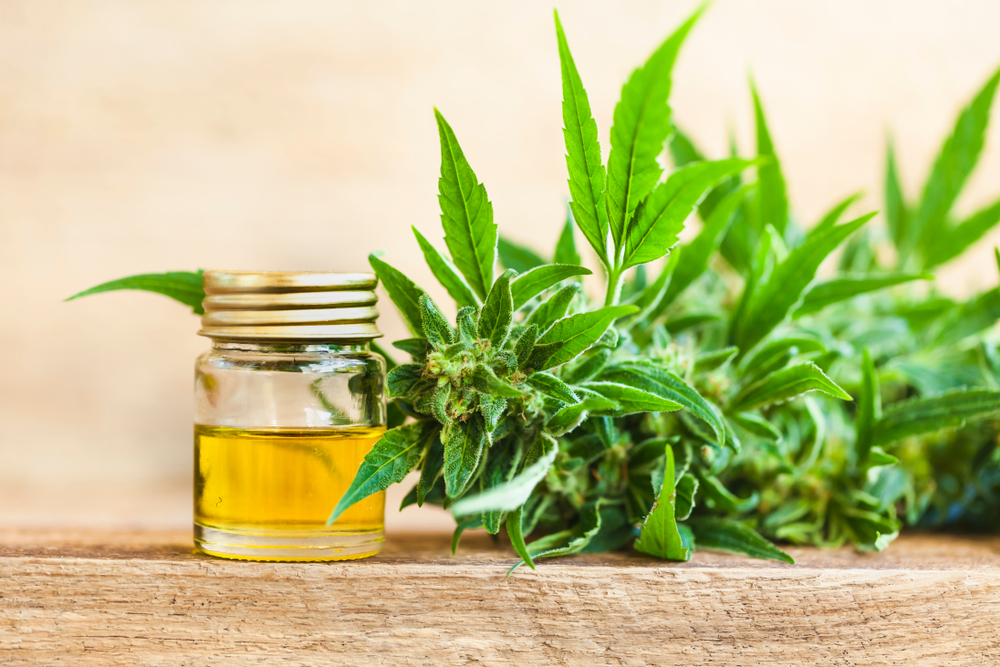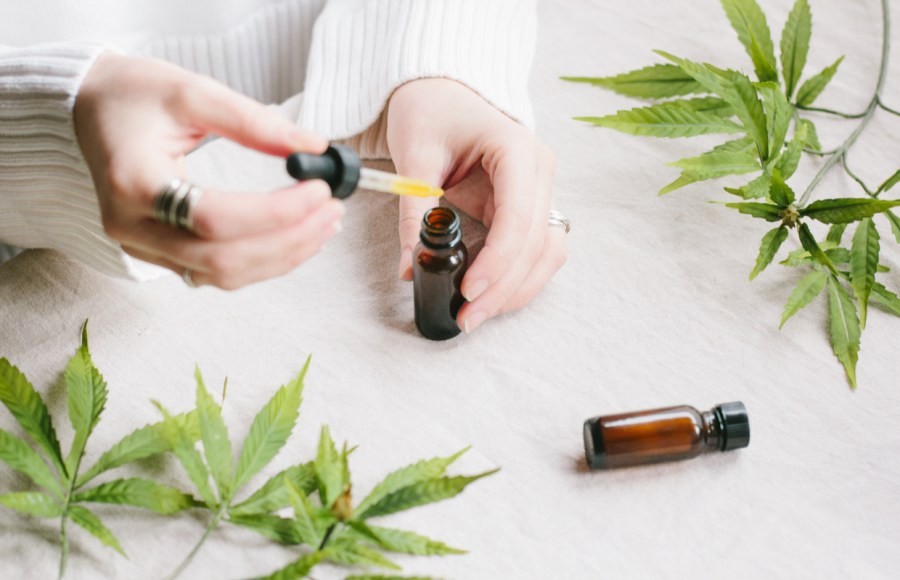Some want to lose weight, others want to gain it. In the end you should be striving for a healthy weight. Ruby Deevoy explains how to use CBD oil for weight loss, before sharing the best CBD oils to try…
As with every article I write on cannabis, the first point I must make is that the endocannabinoid system (ECS) within all of us, which cannabis (or CBD oil) has a unique interaction with, is what keeps the body in balance. It works alongside neurotransmitters, called endocannabinoids, which activate receptors present in almost every single part of the body to regulate practically all bodily functions.
When our endocannabinoids are not properly created and released, perhaps as a result of lack of sleep, exercise or excess weight, we need to support our ECS by living a healthy lifestyle (to promote endocannabinoid release). But we also have the option of supplementing with phytocannabinoids, such as CBD. Some of these mimic the action of our own endocannabinoids.
The reason I am describing this in such detail now is that studies are repeatedly showing that the ECS is likely to play an extremely important role in metabolism, feeling satisfied, the enjoyment of food consumption, food-seeking motivation, taste, digestion and much more besides.

Does CBD oil help with food cravings?
It’s been suggested that the ‘liking’ and ‘wanting’ of food is not necessarily conscious. This is because appetite, the need for energy and the desire to eat are triggered as a means for survival. This is why feelings of hunger can override all others. However, the neural firing responsible for this can go awry, which inevitably causes problems. For example, you may be either craving food more than is necessary or not wanting to eat enough.
Much of this control comes from the hypothalamus. This is an area of the limbic brain that is heavily involved in key bodily processes, such as body temperature, emotions, sex drive and weight control. And incredibly, there’s evidence to suggest that there’s a plethora of ECS receptors located in the hypothalamus. Further evidence suggests that the activation of this system (with endocannabinoids or phytocannabinoids) plays a vital role in regulating its function – and, therefore, healthy weight gain and appetite.
We can witness this perfectly in the fact that breast milk is rich in endocannabinoids. This is thought to encourage the baby to suckle as and when appropriate to get just the right amount of nutrition. Using phytocannabinoids, such as CBD oil, to supplement your endocannabioids may help regulate these processes, for a more balanced relationship with and desire for food.

Can CBD help you feel more satiated?
One big problem many people encounter when trying to lose weight is that they never feel satisfied by the food they eat. This is particularly the case when switching from a high fat diet to lower calories. But taking CBD oil could help with this.
One study showed that mice on a high fat diet had significantly higher levels of endocannabinoids in the hippocampus. This is an area of the brain involved in processing signals of satiety. Without this endocannabinoid activity, it’s likely you’ll always be seeking more. By taking CBD oil, you support the synthesis and release of endocannabinoids. Therefore, you’re increasing the levels throughout your body, including the brain. This may very well help you feel satisfied with fewer calories.
Good fat versus bad fat
A recent study, published in the journal Molecular and Cellular Biochemistry, has linked CBD oil to healthy weight loss. The CBD molecule has been shown to have “fat browning” capabilities. This means it transforms white fat (associated with obesity and diabetes) into brown fat cells, which helps burn extra calories. Better still, CBD has also been shown to reduce the creation of new fat cells.
Benefits of hemp seeds for weight loss
Hemp seeds are another part of the cannabis plant that hold great potential as a natural weight loss aid. More than 25 per cent of the total calories in hemp seeds are from high-quality protein. This is much more than the 16-18 per cent protein provided by chia seeds and flaxseeds.
They are also a plentiful source of vitamins E and B2, and minerals such as phosphorus, potassium, sodium, magnesium, sulphur, calcium, iron and zinc, as well as amino acids. What’s more, hemp seed oil is around 75-80 per cent polyunsaturated fatty acids (the good fats) and only 9-11 percent of saturated fatty acids. As such, hemp seed oil is thought to be the oil with the least saturated fats in the plant world.
Because of this, hemp seeds can be extremely helpful if you’re trying to cut down on snacking or reduce your portion size. Try adding four tablespoons of densely nutritious hemp seeds or 1-2 tablespoons of hemp seed oil into your meal. Each tablespoon equates to roughly 120 calories. Doing this might keep hunger pangs at bay much longer than usual.

5 best CBD products for weight loss
- Ardoa Active CrossPro Nutrition Pea & Hemp Protein (from £19.99) is a plant-based protein powder that utilises the impressive nutrition supplied by hemp seeds.
- Good Hemp Hemp Seed Hearts (£5) helps you stay full for longer. Sprinkle a few tbsp in a smoothie or on porridge.
- Mindful Extracts CBD Oil (from £36.99) is an all-around, excellent full-spectrum oil, for all needs and available in different strengths.
- Honey Heaven Detox & Slim Organic Herbal CBD Spray 1,000mg (£50) blends ayurvedic herbs with a full-spectrum CBD oil. The formula helps stave off cravings, boost metabolism and support weight loss.
- Kaya Rise & Shine Adaptogenic Supplement (£35) helps calm your nervous system, while staying energised! This adaptogenic-rich CBD supplement is the ideal product to support your weight loss.







